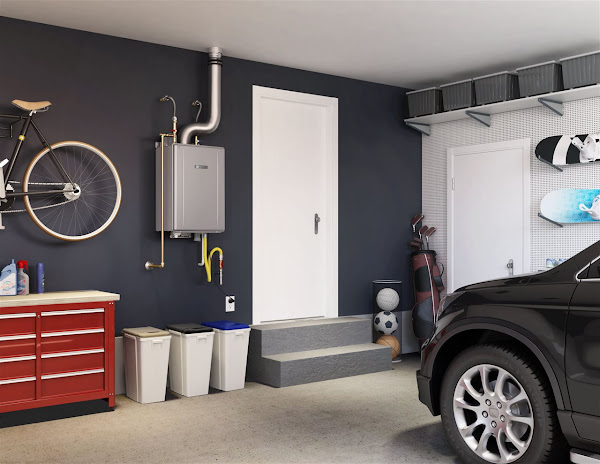At its core, environmentalism is about preserving the planet for future generations, safeguarding ecosystems, and ensuring that the constant stream of human progress doesn't come at the detrimental cost of environmental destruction.

by Sam Holmes
Guest Commentator
As the country and world grapple with an ongoing pollution crisis and demands for cleaner energy, the discourse on combating the negative environmental consequences of human civilization almost universally revolves around renewable energy and “sustainable living.” Yet, there is one crucial tool that is almost universally overlooked in this conversation, and that is the use of nuclear energy.
Despite its clear potential andproven track record of powering the lives of millions around the world with minimal environmental damage, the use of nuclear energy remains an issue that is very divisive. It’s time for us to embrace nuclear power as a cornerstone of what real environmentalism looks like, a cornerstone that prioritizes both sustainability and human prosperity.
At its core, environmentalism is about preserving the planet for future generations, safeguarding ecosystems, and ensuring that the constant stream of human progress doesn't come at the detrimental cost of environmental destruction. Yet, the universal consensus on how we should do so seems to be entirely focused on wind, solar, bioenergy, and carbon capture. While some of those efforts can be useful in certain circumstances, they are not without severe limitations.
For example, solar and wind energy are intermittent, relying on favorable weather conditions. They require vast amounts of land to even produce the same energy output as traditional sources such as oil or natural gas. Whereas in contrast, nuclear energy offers a much more stable, reliable, and highly efficient source of energy. In fact, nuclear power plants are built to withstand severe natural disasters of all kinds. Wind and solar, on the other hand, are often damaged beyond repair by mild tropical storms or even the occasional hail event.
Nuclear materials are by far the most efficient source of energy on the planet. A single uranium fuel pellet, which is roughly the size of a fingertip, contains as much energy as 1,780 pounds of coal, according to the Nuclear Energy Institute.
This high density of energy means that nuclear plants require less resources compared to their “renewable” counterparts. In addition, nuclear power plants on average only take up a measly one third of an acre of land, while the average wind farm spans a grotesque 2-40 acres per megawatts produced. Given that a nuclear plant produces on average 1,000 megawatts, at minimum, any given wind farm would require 2,000 acres of land to compete with nuclear energy’s output, as according to the U.S Department Of Energy.
Despite these advantages, the use of nuclear energy remains mired in public skepticism, often due to safety concerns and historical accidents like Chernobyl and Fukushima. These events are undeniably tragic with lasting environmental damage, but the media and academia have disingenuously shaped public perception, making nuclear energy appear far worse than its actual track record. Nuclear energy remains among the safest forms of energy ever invented, especially when contrasted to fossil fuels, coal burning, and “renewable” energy sources. While nuclear accidents can have severe consequences, nuclear plants are among the safest and most secure facilities on the face of the planet as a result of past incidents.
As citizens who truly care about the world around us and its longevity, we must call upon our state and federal governments to directly incentivize nuclear technology through tax incentives, joint public-private projects, and academic or federal grants to ensure maximum fluidity.
In summary, the path forward for real environmentalism requires a pragmatic approach that embraces all available tools. While solar and wind energy can be useful in certain circumstances like powering a home or providing energy in remote locations, they cannot even come close to powering the American grid let alone the world for that matter. Which is why nuclear energy, with its reliability, efficiency, and minimal presence, must be recognized as a cornerstone of our future global effort to conserve our beautiful planet.
It’s time to move beyond fear and misconceptions and embrace nuclear energy as the most powerful ally in our admirable fight to safeguard our home for future generations.
About the author:
Sam Holmes is a freshman at the University of Illinois. When he is not studying, he is constantly stimulating his mind and body, whether that be from doing wordles daily or going to the gym and lifting weights. He believes mankind's greatest truth is in embracing our fragility, finding the strength to live authentically and ethically within the mystery of existence.











 CHICAGO -- Forecasters are predicting another season of cold, wet weather for Illinois and the upper Midwest this winter, which could bring some high energy bills.
The National Weather Service, the National Oceanic Atmospheric Administration, and the Old Farmer's Almanac are all calling for a snowier-than-usual season, with major storms possible in January and February.
Illinoisans are being advised to take steps now to make their homes and businesses more energy-efficient.
Whitney Hayes, research analyst for the nonprofit advocacy group Elevate, said folks who heat with gas should prepare to dig deep into their wallets.
"There's a couple of things going on with gas prices, one of which is the cost of gas itself," Hayes pointed out. "And so, that does fluctuate depending on the market and depending on what's going on in the world. I mean, gas prices globally are up, it's not just the U.S."
The nonprofit Citizens Utility Board said natural gas prices have doubled or tripled in the past two years, and gas futures just hit a 14-year high. Analysts estimate for November through March, natural gas customers can expect to pay between $1,200 and $1,400 to heat their homes.
Hayes pointed out homeowners could save a significant amount on their energy bills and cut greenhouse gas emissions by switching to electric appliances. While it is not something everyone can afford, she stressed making even minor changes can cut costs.
"Even small things like making sure that there's air sealing around windows and doors, electrical sockets," Hayes outlined. "Even those things can add up when you kind of seal it in -- almost 10% of energy savings -- by doing those small little things."
Hayes added higher gas bills are often a result of regulators allowing utilities to pass along cost increases they incur in what they pay for gas, and the cost of maintaining and expanding the equipment they use to deliver it. She explained both can increase a ratepayer's bottom line.
"In the U.S., and especially in the Illinois-Chicago area, there's a lot of infrastructure costs that people are paying for," Hayes noted. "Gas companies have made all these plans to improve the infrastructure, so that gets funneled down into people's bills."
CHICAGO -- Forecasters are predicting another season of cold, wet weather for Illinois and the upper Midwest this winter, which could bring some high energy bills.
The National Weather Service, the National Oceanic Atmospheric Administration, and the Old Farmer's Almanac are all calling for a snowier-than-usual season, with major storms possible in January and February.
Illinoisans are being advised to take steps now to make their homes and businesses more energy-efficient.
Whitney Hayes, research analyst for the nonprofit advocacy group Elevate, said folks who heat with gas should prepare to dig deep into their wallets.
"There's a couple of things going on with gas prices, one of which is the cost of gas itself," Hayes pointed out. "And so, that does fluctuate depending on the market and depending on what's going on in the world. I mean, gas prices globally are up, it's not just the U.S."
The nonprofit Citizens Utility Board said natural gas prices have doubled or tripled in the past two years, and gas futures just hit a 14-year high. Analysts estimate for November through March, natural gas customers can expect to pay between $1,200 and $1,400 to heat their homes.
Hayes pointed out homeowners could save a significant amount on their energy bills and cut greenhouse gas emissions by switching to electric appliances. While it is not something everyone can afford, she stressed making even minor changes can cut costs.
"Even small things like making sure that there's air sealing around windows and doors, electrical sockets," Hayes outlined. "Even those things can add up when you kind of seal it in -- almost 10% of energy savings -- by doing those small little things."
Hayes added higher gas bills are often a result of regulators allowing utilities to pass along cost increases they incur in what they pay for gas, and the cost of maintaining and expanding the equipment they use to deliver it. She explained both can increase a ratepayer's bottom line.
"In the U.S., and especially in the Illinois-Chicago area, there's a lot of infrastructure costs that people are paying for," Hayes noted. "Gas companies have made all these plans to improve the infrastructure, so that gets funneled down into people's bills."
 Reports are pointing to an 8.9% raise for Social Security recipients. While it won’t feel like enough, it may buy you a sack of groceries or a tank of gasoline. This is a big maybe on the gasoline as California reports prices of over $8 per gallon.
Some of our government leadership is crying because Saudi Arabia is cutting their oil production by 2 million barrels a day. This means less oil for everyone in the grand oil supply pool. I don’t understand why anyone in our government would want to do business with the Saudis.
Buying oil from Saudi Arabia, Venezuela or any foreign entity is crazy. Why don’t we use our own oil? I’m all for green energy but we aren’t quite there yet. Make electric cars and drive them. Utilize solar energy and else anything that we can to help preserve this planet and its resources. Regardless, our country still needs oil. As long as we need oil, it would be wiser and much more cost effective to use our own oil. Put Americans back to work drilling our oil and selling it to foreign countries.
Our government has been draining our own oil reserve to try to keep the price of gasoline down. This doesn’t seem to be working very well. Plus, it puts our country at risk. When China and Russia decide to attack us, we need to be able to put fuel in our jets and ships. That would not be a good time to have to go back to Saudi Arabia and beg for oil.
We should utilize a full arsenal of energy from electric cars and a grid to supply the power. Utilize our oil, wind, natural gas and coal. Once our country can do everything without oil or coal, then we can move on from those resources. Being dependent on getting them from foreign nations doesn’t make sense, especially when we have the resources.
A loaf of bread will eventually cost Americans their 8.9% Social Security increase. Ukraine has been one of the world’s leading providers of wheat. Having Russia in control of Ukraine, a major source of the bread supply, along with their major supply of natural gas is bad news for the world.
The Crimea bridge that was recently bombed between Russia and Ukraine should have been bombed on day one by Ukrainians. Ukraine must do whatever it takes to thwart Russia’s ongoing destruction of their country. The news has been filled with fear that Russia will go nuclear in their efforts. When the nations start hurling nuclear bombs you won’t need to worry about gas, groceries and cost of living adjustments because this planet can only take so much.
Keep in mind there is still something you can do to make a difference – vote. Clear your calendar for voting. If you don’t vote then don’t complain about our government, inflation, rising interest rates, gasoline prices and more. I know it doesn’t feel like your one vote matters, but it truly counts. The only way you can bring about change is to clear your schedule, take the time, and vote.
Reports are pointing to an 8.9% raise for Social Security recipients. While it won’t feel like enough, it may buy you a sack of groceries or a tank of gasoline. This is a big maybe on the gasoline as California reports prices of over $8 per gallon.
Some of our government leadership is crying because Saudi Arabia is cutting their oil production by 2 million barrels a day. This means less oil for everyone in the grand oil supply pool. I don’t understand why anyone in our government would want to do business with the Saudis.
Buying oil from Saudi Arabia, Venezuela or any foreign entity is crazy. Why don’t we use our own oil? I’m all for green energy but we aren’t quite there yet. Make electric cars and drive them. Utilize solar energy and else anything that we can to help preserve this planet and its resources. Regardless, our country still needs oil. As long as we need oil, it would be wiser and much more cost effective to use our own oil. Put Americans back to work drilling our oil and selling it to foreign countries.
Our government has been draining our own oil reserve to try to keep the price of gasoline down. This doesn’t seem to be working very well. Plus, it puts our country at risk. When China and Russia decide to attack us, we need to be able to put fuel in our jets and ships. That would not be a good time to have to go back to Saudi Arabia and beg for oil.
We should utilize a full arsenal of energy from electric cars and a grid to supply the power. Utilize our oil, wind, natural gas and coal. Once our country can do everything without oil or coal, then we can move on from those resources. Being dependent on getting them from foreign nations doesn’t make sense, especially when we have the resources.
A loaf of bread will eventually cost Americans their 8.9% Social Security increase. Ukraine has been one of the world’s leading providers of wheat. Having Russia in control of Ukraine, a major source of the bread supply, along with their major supply of natural gas is bad news for the world.
The Crimea bridge that was recently bombed between Russia and Ukraine should have been bombed on day one by Ukrainians. Ukraine must do whatever it takes to thwart Russia’s ongoing destruction of their country. The news has been filled with fear that Russia will go nuclear in their efforts. When the nations start hurling nuclear bombs you won’t need to worry about gas, groceries and cost of living adjustments because this planet can only take so much.
Keep in mind there is still something you can do to make a difference – vote. Clear your calendar for voting. If you don’t vote then don’t complain about our government, inflation, rising interest rates, gasoline prices and more. I know it doesn’t feel like your one vote matters, but it truly counts. The only way you can bring about change is to clear your schedule, take the time, and vote.




